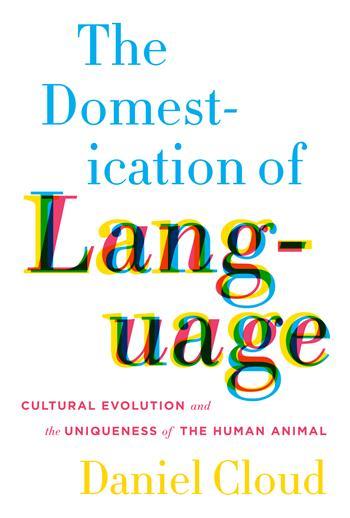Two interviews with Daniel Cloud on "The Domestication of Language"
This week our featured book is The Domestication of Language: Cultural Evolution and the Uniqueness of the Human Animal, by Daniel Cloud. Throughout the week, we will be posting content from and about the book and it’s author. Today, we are happy to present two podcast interviews with Daniel Cloud, one from the New Books In network and one from the Smart People Podcast.
Don’t forget to enter our book giveaway for The Domestication of Language!
First, Cloud spoke with the New Books in Big Ideas podcast about the puzzles raised by looking at prehistoric linguistics through an evolutionary eye, in particular: “why is human language and culture so astoundingly complex?”
[C]omplex linguistic and cultural abilities and forms did evolve. So, we have to ask, where do Shakespeare and Large Hadron Colliders come from? Daniel Cloud has an answer: domestication. In his fascinating and thought-provoking new book The Domestication of Language: Cultural Evolution and the Uniqueness of the Human Animal (Columbia University Press, 2014), Cloud argues that over the millennia proto-humans and humans have been selecting mates who were good with symbols and selecting symbols themselves. This process–a kind of runaway sexual selection and domestication–rapidly (in evolutionary time-scales) produced both a huge expensive brain and an ornate culture to match. Listen in.
Next, at the Smart People Podcast, Cloud focuses on the evolution of language, “where it came from, and where it may be going.”
Have you ever thought about what words mean and where they came from? Why do you use a certain work in conversation instead of another? The choice of which words to use and in which sense to use them is both a “selection event” and an intentional decision.
Our guest this week is Dan Cloud, and in his brand new book, The Domestication of Language: Cultural Evolution and the Uniqueness of the Human Animal, Dan explores the analogy between Darwin’s model of domestication and the evolution of human languages and cultures.


